The Joint Admissions and Matriculation Board (JAMB) has released the updated syllabus for Igbo. The JAMB Syllabus for Igbo is an essential resource for candidates preparing to sit for the Igbo paper in the Unified Tertiary Matriculation Examination (UTME).
The JAMB Syllabus for Igbo outlines the key topics and areas that students are expected to study, ensuring they have a clear understanding of what to focus on as they prepare.
Below in this post, you will find the detailed JAMB Igbo syllabus as well as a comprehensive list of recommended books that will help you prepare thoroughly and pass the JAMB Igbo examination with confidence.
JAMB Syllabus For Igbo
| SECTION | TOPICS/CONTENTS/NOTES | DETAILS |
|---|---|---|
| SECTION A: LANGUAGES (ASỤSỤ) | 1. Essay (Edemede) | – Basic principles of essay writing: introduction, body, conclusion – Basic essay types: (i) Narrative (Akọmakọ) (ii) Descriptive and Expository (Nkọwa na Nkọwami) (iii) Argumentative (Mgbagha/Arụmarụụka) (iv) Speech making (Ekwumekwu) (v) Letter Writing (Edemleta) (vi) Dialogue (Mkparịtaụka) |
| 2. Comprehension (Aghọtaazaa) | One passage of about 150 words | |
| 3. Sounds and Sound Patterns (Ụdaasụsụ na Usoro Ụdaasụsụ) | (a) Vowels and Consonants (Ụdaume na mgbochiume) (b) Sound Patterns/Processes: i. Syllabic nasals (myiri ụdaume) ii. Syllable structure (nkeji mkpụrụokwu) iii. Vowel harmony (ndakọrịta ụdaume) iv. Vowel assimilation (olilo ụdaume) v. Vowel elision and consonant elision (ndapụ ụdaume na ndapụ mgbochiume) (c) Tone and tone marking (Akara ụdaolu) | |
| 4. Spelling and spelling rules (Nsupe na Iwu Nsupe) | – | |
| 5. Igbo Orthography (Mkpụrụedemede Igbo) | Candidates should: (i) detect correctly written Igbo words (ii) observe consonant restrictions (iii) determine correct word division (iv) apply correct spellings | |
| 6. Dialect and Standard Igbo (Olundị/Olumba na Igbo Izugbe) | – | |
| 7. Vocabulary (Mkpụrụokwu dị n’asụsụ) | Expansion through: word derivation, coinages, loans, loan blends (Ịmụbawanye mkpụrụokwu site n’usoro mmepụta, mkpụpụta, mbite na mbiọgwa) | |
| 8. Grammar (Ụtọasụsụ) | (a) Parts of speech (Nkejiasụsụ): Nominals (Mkpọaha), verbs (ngwaa), adjectives (nkọwa), adverbs (nkwuwa), affixes (mgbakwunye), enclitics (nsokwunya) (b) Morpheme structure, types and functions (Ndokọ, ụdị na ọrụ mọfịm): (i) word (mkpụrụokwu) (ii) phrase (nkebiokwu) (iii) clause (nkebiahịrị) nominal, relative, adverbial (kemkpọaha na kenkwuwa) (iv) sentence (ahịrịokwu): simple (mfe), compound (ukwu), complex (mgbagwọ) | |
| 9. Translation (Ntụgharị) | – |
| SECTION | TOPIC | DETAILS / CONTENTS |
|---|---|---|
| SECTION B: LITERATURE (AGỤMAGỤ) | 1. Literary Devices (Atụmatụokwu na atụmatụ agụmagụ) | Includes: alliteration (bịambia mgbochiume), assonance (bịambịa ụdaume), parallelism (kwunkwugha), metaphor (mbụrụ), simile (myiri), hyperbole (egbeokwu), personification (mmemmadụ), proverbs (ilu), etc. |
| 2. Oral Literature (Agụmagụ Ọnụ/ Agụmagụ Ọdịnala) | Folktales (ifo), anecdotes (ụkabụilu), myths (nkọmịrịkọ), legends (nkọkịrịkọ), poems (abụ), songs (uri), chants (mbem), riddles (agwụgwa), oral drama (ejije ọnụ), tongue-twister (okwuntụhị), etc. | |
| 3. Written Literature (Agụmagụ Ederede) | (a) Prose (iduuazị): – Ude Ọdịlọra (1981) Ọkpa Akụ Eri Eri (NECO/WAEC 2016-2020) (b) Poetry (Abụ): – Ikeokwu E.S & Onyejekwe M.C. (2009) Uche Bụ Ahịa (WAEC/NECO 2016-2020) Selected Poems: 1. Mbem ụmụ Okorobļa – 17 2. Arụ – 21 3. Chukwu Ndi Isi Ojii – 26 4. Ilu – 31 5. Onye Ara na Uche Ya – 34 6. Ugomma – 37 7. Abụ – 43 8. Ihe Egwu anyị – 47 9. Ego Na-ekwu – 50 10. Nne Anyi Afrika – 52 11. Mmadụ – 59 12. Ule Akwụkwọ Naijiria – 61 13. Di Anyi I Bụrụla Eze – 63 14. Mmanya – 65 15. ụwa – 66 (c) Drama (EJIJE): – Odụke Artists (1981). Ojaadili Ibadan: U.P.L (WAEC/NECO 2021-2025) |
| SECTION | TOPIC | DETAILS / CONTENTS |
|---|---|---|
| SECTION C: CUSTOMS AND INSTITUTIONS (Omenala na Ewumewu) | Igbo customs and institutions including: | 1. Ekele dị icheiche (different greetings): morning, afternoon, evening, meals, farewells, work, etc. 2. Marriage and divorce 3. Birth and child care, naming ceremonies 4. Leadership titles: Ọzọ, Eze/Obi/Igwe/Iyom 5. Funeral rites, mourning, and burial ceremonies 6. Kinship: Ụmụnna, ụmụọkpụ/ụmụada 7. Age groups, communities, families 8. Sacred matters: sacred animals, plants, places, sacrifices 9. Traditional governance: Igwe/Eze, Nze na Ọzọ, kinship and family 10. Hospitality: receiving guests, hospitality rituals 11. Divination and spiritual practices: sacrifices, spirit calling, worship 12. Beliefs: oath taking, drinking potions, charms 13. Economy: land ownership, farming, trade 14. Spiritual powers: ọfọ, ogu, ọtọnsi, okpesi, ikenga 15. Games and entertainment: wrestling, moonlight dances, traditional sports 16. Igbo occupations: farming, fishing, hunting, trading, crafts |
| SECTION D: GENERAL AND CURRENT AFFAIRS (Ihe Ndị na-eme Ugbua) | Topical issues and current affairs related to Igbo culture and language: | 1. Igbo language, literature and culture events (Ahịajiọkụ and Odenigbo lectures) 2. Ọhanaeze Ndị Igbo (Igbo socio-political organization) 3. Authors, publishers, publication dates and places of Igbo works 4. Igbo Studies Association (ISA) |
| CURRENT ISSUES (Okwuakpụnọnụ) | Examples of current topics for comprehension exercises: | HIV/AIDS (Mmịnwụ/Obirinaajaọcha) Drug Abuse (Ịṅu Ọgwụ Agharaaghara) Cultism (Otu Nzuzo) Rights of Women and Children (Oruuru Ụmụnwaanyị na Ụmụaka) Human Rights Violation (Ịnapụ Mmadụ Ikike) Religious Conflicts (Nsogbu Ndọkụrịta Ekpemekpe Ụka) |
Recommended Texts For JAMB Syllabus For Igbo
- Emenanjo, E. N., Okolie, F. O., & Ekwe, B. U. (1995). Igbo maka Sinịọ Sekọndịrị Sukul I.
- Emenanjo, E. N., Dike, O. N., Agomo, S. N., & Ezeuko, R. O. (1999). Exam Focus maka WASSCE na UME. Ibadan: University Press Plc.
- Ezikeojiaku, P. A., Okebalama, C. N., Onweluzo, C. N., & Ekwe, B. U. (1991). Ule Igbo maka Sinịọ Sekọndịrị. Ibadan: University Press Plc.
- Ikekeonwu, C., Ezikeojiaku, P. A., Ubani, A., & Ugoji, J. (1999). Fonọlọji na Grama Igbo. Ibadan: University Press Plc.
- Nzeakọ, J. U. T. (1972). Omenala Ndị Igbo. Ibadan: Longman.
- Okoye, O. F. S., Ofoegbu, N. F., & Ezidiegwu, B. L. (1997). Ọgbara Ọhụrụ Ụtọasụsụ Igbo maka Sinịọ Sekọndịrị. Onitsha: Houston Publishers Ltd.
- Osuagwu, B. I. N. (1979). Ndị Igbo na Omenala Ha. Nigeria: Macmillan.
- Ubesie, T. U. (1978). Ọdịnala Ndị Igbo. Ibadan: Oxford University Press.
- Umeh, I. O. A., Onyekaonwu, G. O., Nwadike, I. U., & Okeke, I. O. (1992). Ụtọasụsụ na Agụmagụ Igbo nke Sinịọ Sekọndịrị Sukul. Ibadan: Evans.
- Ụba – Mgbemena, A. (2006). Ntọala Usoroasụsụ Igbo. Ibadan: Gold Press Ltd.
- Anọzie, C. C. (2003). Igbo Kwenu: Akụkọ na Omenala ndị Igbo. Enugu: Computer Edge Publishers.
- Ọfọmata, C. E. (2005). Ndezu Ụtọasụsụ Igbo. Enugu: Format Publishers (Nig) Ltd.
- Ofili, D. N., Anozie, C. C., & Chukwu, A. O. (2012). Lingwistiiki Sayensị Asụsụ II. Enugu: Computer Edge Publishers.
Make sure to follow the syllabus carefully and use the recommended texts along with past questions to guide your study. This approach will help you get the best results in your Igbo exam. If you have any questions, feel free to ask in the comments, and we will get back to you shortly.
Don’t forget to share this post with your friends who are also preparing for JAMB. You can also visit our page to find syllabi for other JAMB subjects. Good luck with your studies!
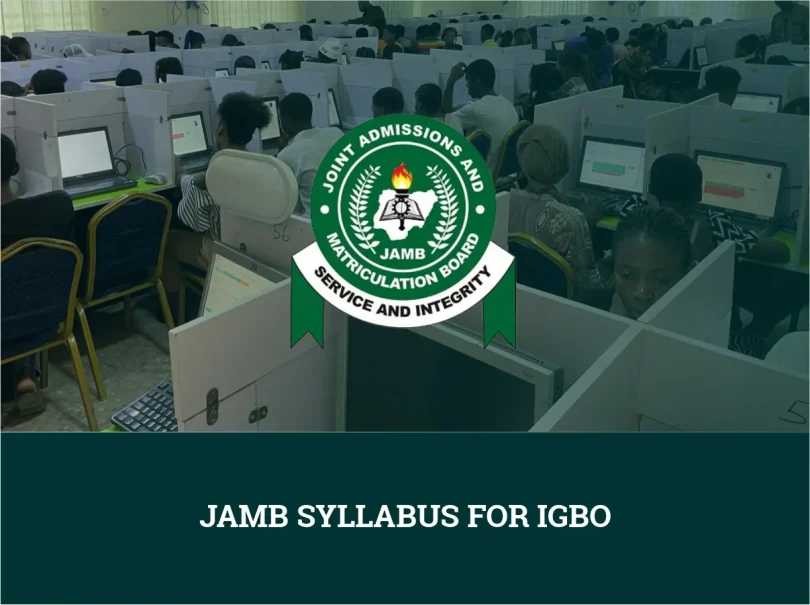
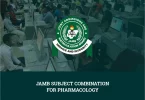


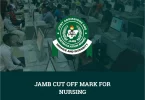
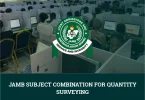
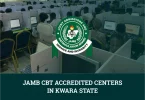
Leave a Comment